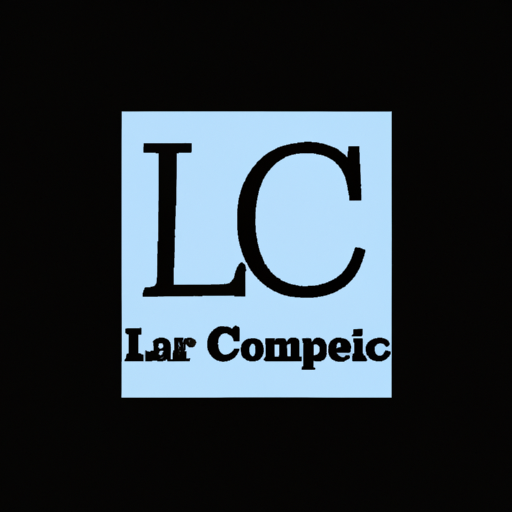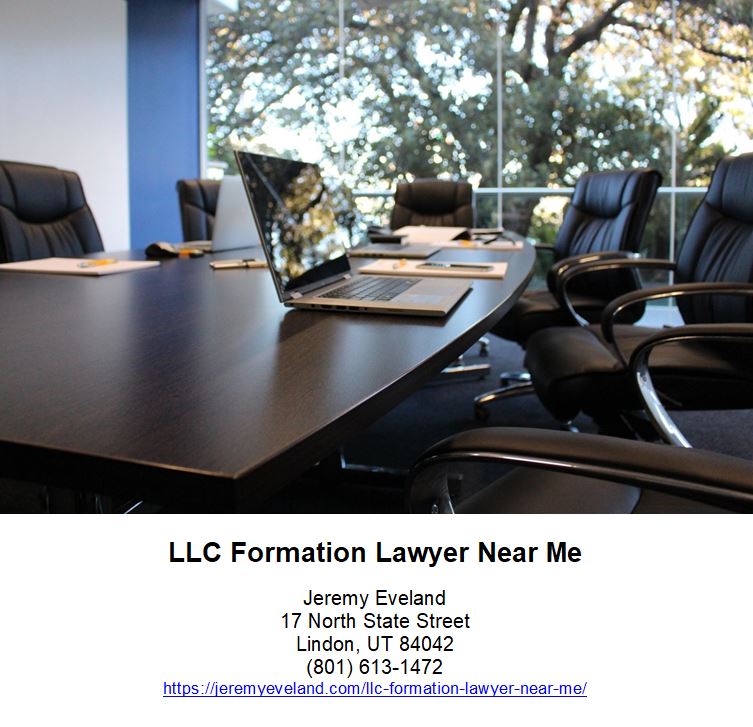-
Legal Topics
- Introduction
- What to Expect During the LLC Formation Process with an LLC Formation Lawyer Near Me
- Common Mistakes to Avoid When Forming an LLC with an LLC Formation Lawyer Near Me
- The Benefits of Working with an Experienced LLC Formation Lawyer Near Me
- How to Prepare for Your Initial Consultation with an LLC Formation Lawyer Near Me
- What to Look for When Choosing an LLC Formation Lawyer Near Me
- Q&A
“Get the LLC Formation Advice You Need – Find a Lawyer Near You!”
Introduction
Welcome to LLC Formation Lawyer Near Me! We are a team of experienced attorneys dedicated to helping entrepreneurs and business owners form and maintain their limited liability companies (LLCs). We understand the importance of having a strong legal foundation for your business, and we are here to provide you with the guidance and resources you need to ensure that your LLC is properly formed and maintained. Our attorneys have extensive experience in LLC formation law and can provide you with the advice and assistance you need to ensure that your LLC is compliant with all applicable laws and regulations. We look forward to helping you get your business off the ground and running smoothly.
What to Expect During the LLC Formation Process with an LLC Formation Lawyer Near Me
Forming an LLC is a complex process that requires careful consideration of the legal and financial implications of the business structure. Working with an experienced LLC formation lawyer can help ensure that the process is completed correctly and efficiently.
When working with an LLC formation lawyer, the first step is to discuss the business’s goals and objectives. This will help the lawyer understand the business’s needs and determine the best structure for the LLC. The lawyer will also review the business’s financials and advise on the best way to structure the LLC to maximize tax benefits.
The next step is to draft the LLC’s operating agreement. This document outlines the rights and responsibilities of the LLC’s members and sets out the rules for how the LLC will be managed. The lawyer will review the agreement to ensure that it meets the legal requirements of the state in which the LLC is being formed.
Once the operating agreement is finalized, the lawyer will help the LLC file the necessary paperwork with the state. This includes filing the Articles of Organization, which officially creates the LLC. The lawyer will also help the LLC obtain any necessary licenses or permits.
Finally, the lawyer will help the LLC open a business bank account and register for any necessary taxes. The lawyer can also provide advice on how to protect the LLC’s assets and ensure that the business is compliant with all applicable laws.
By working with an experienced LLC formation lawyer, business owners can ensure that their LLC is properly formed and that all of the necessary steps are taken to protect the business’s interests.
Common Mistakes to Avoid When Forming an LLC with an LLC Formation Lawyer Near Me
1. Not Choosing the Right State: When forming an LLC, it is important to choose the right state. Each state has different laws and regulations that govern LLCs, so it is important to research the laws of the state you are forming in. Additionally, some states may have more favorable tax laws or other benefits that make them a better choice for your LLC.
2. Not Having an Operating Agreement: An operating agreement is a document that outlines the rules and regulations of the LLC. It should include information such as the ownership structure, voting rights, and how profits and losses will be distributed. Without an operating agreement, the LLC may not be able to operate as intended.
3. Not Complying with State Requirements: Each state has different requirements for LLCs, such as filing fees, annual reports, and other paperwork. It is important to make sure that all of these requirements are met in order to keep the LLC in good standing.
4. Not Having a Registered Agent: A registered agent is a person or business that is designated to receive legal documents on behalf of the LLC. This is important because it ensures that the LLC will be notified of any legal action taken against it.
5. Not Keeping Records: It is important to keep accurate records of all transactions and activities related to the LLC. This includes keeping track of income and expenses, filing taxes, and other important documents.
6. Not Consulting an Attorney: An LLC formation lawyer can provide valuable advice and guidance when forming an LLC. They can help ensure that all of the necessary steps are taken and that the LLC is in compliance with all applicable laws.
The Benefits of Working with an Experienced LLC Formation Lawyer Near Me
Forming an LLC is an important step for any business. It is a legal structure that provides limited liability protection for the owners of the business, as well as other benefits. Working with an experienced LLC formation lawyer can help ensure that the process is done correctly and that all of the necessary paperwork is filed properly.
An experienced LLC formation lawyer can provide valuable advice and guidance throughout the process. They can help you understand the different types of LLCs and the advantages and disadvantages of each. They can also help you determine the best structure for your business and provide advice on how to best protect your assets.
An experienced LLC formation lawyer can also help you draft the necessary documents to form your LLC. This includes the Articles of Organization, Operating Agreement, and other documents. They can also help you understand the various state and federal laws that apply to LLCs and ensure that your LLC is compliant with all applicable laws.
An experienced LLC formation lawyer can also help you understand the tax implications of forming an LLC. They can help you determine the best way to structure your LLC to minimize your tax liability and maximize your profits. They can also help you understand the various tax deductions and credits available to LLCs and how to take advantage of them.
Finally, an experienced LLC formation lawyer can provide valuable advice and guidance throughout the entire process. They can help you understand the various legal requirements and paperwork involved in forming an LLC and ensure that everything is done correctly. They can also provide advice on how to best manage your LLC and ensure that it is running smoothly.
Overall, working with an experienced LLC formation lawyer can be a great way to ensure that your LLC is formed correctly and that all of the necessary paperwork is filed properly. They can provide valuable advice and guidance throughout the entire process and help you understand the various legal requirements and paperwork involved in forming an LLC. They can also help you understand the various tax implications of forming an LLC and ensure that your LLC is compliant with all applicable laws.
How to Prepare for Your Initial Consultation with an LLC Formation Lawyer Near Me
Preparing for your initial consultation with an LLC formation lawyer near you is an important step in the process of forming a limited liability company (LLC). Taking the time to prepare for the consultation will help ensure that you get the most out of the meeting and that you are able to make an informed decision about the formation of your LLC. Here are some tips to help you prepare for your initial consultation with an LLC formation lawyer.
1. Research the lawyer: Before meeting with an LLC formation lawyer, it is important to research their background and experience. Look for reviews from past clients, read up on their qualifications, and check to see if they are a member of any professional organizations. This will help you get a better understanding of the lawyer’s expertise and whether they are the right fit for your needs.
2. Gather documents: Before your initial consultation, it is important to gather all of the necessary documents and information that you will need to discuss with the lawyer. This includes any documents related to the formation of your LLC, such as articles of organization, operating agreements, and other relevant documents. Additionally, you should also bring any questions or concerns that you have about the formation of your LLC.
3. Prepare questions: Before your initial consultation, it is important to prepare a list of questions that you would like to ask the lawyer. This will help ensure that you get all of the information that you need to make an informed decision about the formation of your LLC. Some questions that you may want to ask include: What are the advantages and disadvantages of forming an LLC? What are the steps involved in forming an LLC? What are the costs associated with forming an LLC?
By taking the time to prepare for your initial consultation with an LLC formation lawyer, you can ensure that you get the most out of the meeting and that you are able to make an informed decision about the formation of your LLC.
What to Look for When Choosing an LLC Formation Lawyer Near Me
When choosing an LLC formation lawyer near you, there are several important factors to consider. First, you should make sure that the lawyer is experienced in the formation of LLCs. Ask for references and check their credentials to ensure that they have the necessary experience and knowledge to handle your LLC formation.
Second, you should make sure that the lawyer is familiar with the laws and regulations in your state. Different states have different requirements for LLC formation, so it is important to make sure that the lawyer is knowledgeable about the laws in your state.
Third, you should make sure that the lawyer is willing to answer any questions you may have. Ask questions about the process, the fees, and any other information you may need. A good lawyer should be willing to answer all of your questions and provide you with the information you need to make an informed decision.
Fourth, you should make sure that the lawyer is available to meet with you in person. Meeting with a lawyer in person can help you get a better understanding of the process and the fees associated with it.
Finally, you should make sure that the lawyer is willing to provide you with a written agreement outlining the terms of the LLC formation. This agreement should include the fees, the timeline for the formation, and any other information you may need.
By following these tips, you can ensure that you find an experienced and knowledgeable LLC formation lawyer near you. With the right lawyer, you can be sure that your LLC formation will be handled properly and efficiently.
Q&A
1. What is an LLC Formation Lawyer?
An LLC Formation Lawyer is a lawyer who specializes in helping business owners form and maintain limited liability companies (LLCs). They provide advice on the legal requirements for forming an LLC, as well as the tax implications of doing so.
2. What services do LLC Formation Lawyers provide?
LLC Formation Lawyers provide a variety of services, including helping business owners choose the right type of LLC for their business, drafting the necessary documents to form the LLC, filing the paperwork with the state, and providing ongoing advice and guidance on the legal and tax implications of running an LLC.
3. What should I look for in an LLC Formation Lawyer?
When looking for an LLC Formation Lawyer, it is important to find someone who is knowledgeable and experienced in the area of LLC formation and maintenance. It is also important to find someone who is willing to take the time to understand your business and provide tailored advice.
4. How much does it cost to hire an LLC Formation Lawyer?
The cost of hiring an LLC Formation Lawyer will vary depending on the complexity of the case and the lawyer’s experience. Generally, the cost will range from a few hundred dollars to several thousand dollars.
5. How do I find an LLC Formation Lawyer near me?
The best way to find an LLC Formation Lawyer near you is to search online for lawyers in your area who specialize in LLC formation. You can also ask friends and family for referrals, or contact your local bar association for a list of qualified lawyers.
LLC Formation Lawyer Consultation
When you need help from an LLC Formation Lawyer call Jeremy D. Eveland, MBA, JD (801) 613-1472 for a consultation.
Jeremy Eveland
17 North State Street
Lindon UT 84042
(801) 613-1472
Related Posts
Business Contract Lawyer Spanish Fork
Corporate Attorney Riverton Utah
Advantages of Hiring a Utah Personal Injury Lawyer
Estate Planning Lawyer Provo Utah
Business Lawyer West Valley City Utah
Business Succession Lawyer Eagle Mountain Utah
Estate Planning Lawyer West Jordan Utah







